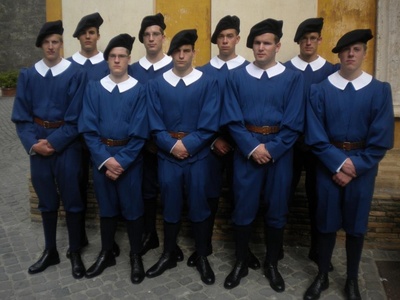Paul Zalonski: June 2012 Archives
You can count on a delegation from the Ancient See of Constantinople visiting Rome and the Holy Father on the Solemnity of Saints Peter and Paul. Most years a small of group of bishops and archimandrites designated by the Ecumenical Patriarch descend on Rome to pray at the Tombs of Peter and Paul, to attend the Mass with the Pope and those receiving the pallium and to exchange ideas with the Pope. Lunch in the Apostolic Palace is regular. In an editorial by L'Osservatore Romano, Pope Benedict talks more openly about the goal of these ecumenical exchanges. Eucharistic sharing is still impossible, but the hope and identifiable goal is that one day --and one hopes it happens in the next 50 years-- that we can be in full visible communion. The editorial is below with my emphasis.
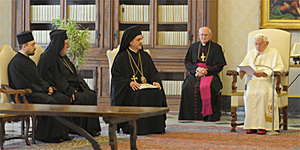
The Second Vatican Council, the 50th anniversary of whose opening is to be celebrated next 11 October, has marked "a new and important phase in relations" between Catholics and Orthodox. In recognizing this the Pope expressed the hope that "progress may also be made in the current phase", while waiting "to arrive soon at the blessed day when we will be able to share in the Eucharistic banquet".
The traditional meeting with the Delegation of the Ecumenical Patriarchate of Constantinople, received in audience on Thursday morning, 28 June, on the eve of the Feast of Sts Peter and Paul, was an opportunity for Benedict XVI to recall the importance of the Council in the development of ecumenical dialogue. It was also an opportunity to remember, in particular, the "passion for the unity of the Church" which inspired the Ecumenical Patriarch Athenagoras and the Pontiffs, John XIII and Paul VI, who "made themselves champions of courageous projects that paved the way to renewed relations between the Ecumenical Patriarchate and the Catholic Church".
These are the ones who, living in the flesh, planted the Church with their blood; they drank the chalice of the Lord and became the friends of God.
O God, who on the Solemnity of the Apostles Peter and Paul give us the noble and joy of this day, grant we pray, that your Church may in all things follow the teaching of those through whom she received the beginnings of right religion.
The antiphon and Collect set the tone by noting our belief: the Church is built on the life, work and sacrifice of two men in collaboration with Christ. It is, as Benedict says, truth is one and symphonic (an idea taken from von Balthasar). How do we live this reality?
Today's solemnity brings with it a wonderful remembrance of how God uses unsuspecting people to witness to his truth and power. The Pope has "traditionally" bestowed the pallium on the new archbishops as a sign of communion with him in serving the Church and a share in the Cross. North America has several new metropolitan archbishops who went to Rome to pray at the tombs of these Apostles and to receive from the Holy Father this beautiful symbol of office.
Two paragraphs below are taken from the Holy Father's homily, but the entire text may be read here:
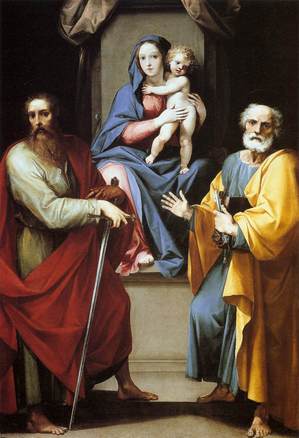
In front of Saint Peter's Basilica, as is well known, there are two imposing statues of Saint Peter and Saint Paul, easily recognizable by their respective attributes: the keys in the hand of Peter and the sword held by Paul. Likewise, at the main entrance to the Basilica of Saint Paul Outside the Walls, there are depictions of scenes from the life and the martyrdom of these two pillars of the Church. Christian tradition has always considered Saint Peter and Saint Paul to be inseparable: indeed, together, they represent the whole Gospel of Christ. In Rome, their bond as brothers in the faith came to acquire a particular significance. Indeed, the Christian community of this City considered them a kind of counterbalance to the mythical Romulus and Remus, the two brothers held to be the founders of Rome. A further parallel comes to mind, still on the theme of brothers: whereas the first biblical pair of brothers demonstrate the effects of sin, as Cain kills Abel, yet Peter and Paul, much as they differ from one another in human terms and notwithstanding the conflicts that arose in their relationship, illustrate a new way of being brothers, lived according to the Gospel, an authentic way made possible by the grace of Christ's Gospel working within them. Only by following Jesus does one arrive at this new brotherhood: this is the first and fundamental message that today's solemnity presents to each one of us, the importance of which is mirrored in the pursuit of full communion, so earnestly desired by the ecumenical Patriarch and the Bishop of Rome, as indeed by all Christians.
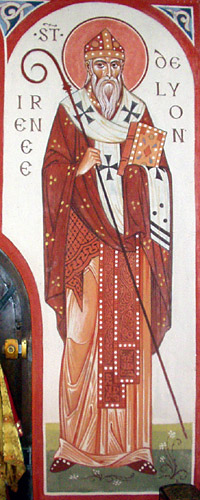 O God, who called the Bishop Saint Irenaeus to confirm
true doctrine and the peace of the Church, grant, we pray, through his
intercession, that, being renewed in faith and charity, we may always be intent
on fostering unity and concord.
O God, who called the Bishop Saint Irenaeus to confirm
true doctrine and the peace of the Church, grant, we pray, through his
intercession, that, being renewed in faith and charity, we may always be intent
on fostering unity and concord.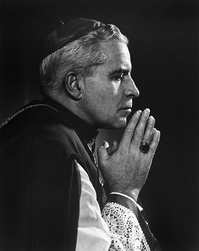
Two "New Yorkers" advance in the study of their sanctity: Fulton J. Sheen and Mother Angelina Teresa.
Today, Pope Benedict XVI gave his permission for the promulgation of the decree concerning the "heroic virtues" of now Venerable Servant of God Fulton J. Sheen (1895-1979). Sheen was a great communicator of the faith in the 20th century. His winning personality and sincerity drew people to Christ.
A wonderful development is the recognition that Brigida Teresa McCrory (1893-1984) known as Mother Angelina Teresa, foundress of the Carmelite Sisters of the Aged and Infirmed, lived a life of heroic virtue. This is good news because it highlights the good work these Carmelite sisters continue to do, notably around the corner from St Catherine of Siena Church (NYC).
Moreover, he did the same for the former Prelate of Opus Dei, the Servant of God Alvaro del Portillo y Diez de Sollano, Spanish prelate of the Personal Prelature of the Holy Cross and Opus Dei (1914-1994). He was the immediate successor to Saint Josemaria.
Angelo Cardinal Amato SDB, prefect of the Congregation for the Causes of Saints, presented these and other causes for sainthood.
UPDATE: Cardinal Dolan writes about the 2 New Yorkers...
"Our Lord was crucified by the nice people who held that religion was all right in its place, so long as its place was not here, where it might demand of them a change of heart. The gravest error of the nice people in all ages is the denial of sin."
The Servant of God Archbishop Fulton Sheen
h/t Fr Z

Yahoo News reports:
"He was a U.S. Navy seal best known for learning to use a screwdriver. And now Cold War veteran Gunnar has passed away on Monday. He was 38-years-old at the time of his death and enjoying some quiet living in Washington DC's National Zoo."
More here because you're interested in the service of this seal.
The public has been bombarded with the media's assessment of nuns, church, the sexual abuse crisis, fidelity to the Lord, and the like. In some ways the media looks at the life of the Church and picks out the obvious problems of coherence. No doubt we have matters of concern that we have to work to correct; the adage: "the Church always needs renewal" is very true today. We rely on the Holy Spirit and the good work of Pope Benedict. The other day I found this review of a document written by members of the International Theological Commission (ITC), a group of theologians organized by the Pope to advise him on certain questions of theological questions of importance. Even the Pope needs advice! The ITC group is made up of a diversity of peoples from around the world. The ones I know personally are fine men and women, credible witnesses of the Lord. The review of Theology Today that follows is written by Father Paul McPartlan in which he synthesizes the document giving us the broad view of the work of Catholic theologian. What he highlights sits in contradistinction to what we've heard about the recent work of Sr Margaret Farley and other theologians who see themselves in a different light. I prefer to put my money the ITC and not on "envelop pushing, agenda driven" theologians. You?
Following its examination, in Chapter One, of the fundamental nature of theology, as the rational exploration of that faith which is a response to the proclamation of the Word of God, and prior to its extended reflection, in Chapter Three, on significant aspects of the rationality of theology, the new International Theological Commission (ITC) text, Theology Today: Perspectives, Principles and Criteria, carefully considers the ecclesial context of theology in Chapter Two. "The ecclesiality of theology is a constitutive aspect of the theological task, because theology is based on faith, and faith itself is both personal and ecclesial", it says, emphasising that "it is through the Church that theologians receive the object of their enquiry" (n.20). Theological enquiry is therefore properly conducted within the living and life-giving milieu of the leiturgia, martyria and diakonia of the Church (cf. n.7). In short, as the chapter's title indicates, it is necessary for theologians to abide in the communion of the Church.
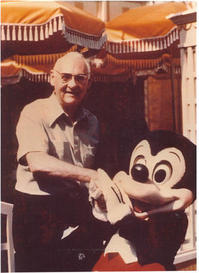
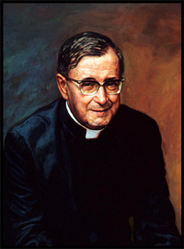
Don't let your life be barren. Be useful. Make yourself felt. Shine forth with the torch of your faith and your love...Don't flutter around like a hen, when you can soar to the heights of an eagle!
Saint Josemaría Escrivá
The WayMore info on the life and works of Saint Josemaría Escrivá can be found here.
A person who attends a bible study I organize asked if indulgences are still possible, in vogue, as it were. "Weren't they done away with at Vatican II?", I was asked. I assured this person that indeed indulgences were still a common practice in the Catholic Church and that they have received a renewed sensibility with Benedict XVI. THE thing that catapulted the Church into the protestant revolution is now being talked about with seriousness and sincerity because it is realized that the practice of giving indulgences does help us to know ourselves and the mercy of God better.
In brief, the Catechism teaches that "The doctrine and practice of indulgences in the Church are closely linked to the effects of the sacrament of Penance" (1471ff).
So, what is an indulgence? Why would a Catholic be interested in knowing more about indulgences?
"An indulgence is a remission before God of the temporal punishment due to sins whose guilt has already been forgiven, which the faithful Christian who is duly disposed gains under certain prescribed conditions through the action of the Church which, as the minister of redemption, dispenses and applies with authority the treasury of the satisfactions of Christ and the saints."
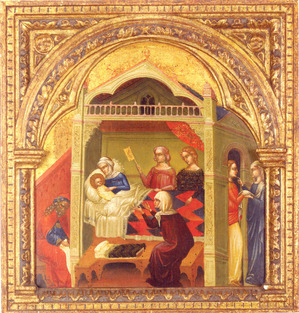
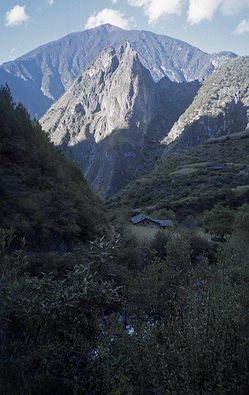
On the feast of the Sacred Heart of Jesus I am reminded of Saint Bernard's image in Sermon 61 on the Song of Songs. There the sainted Cistercian abbot likens the pierced heart of Jesus Christ, and the wounds in his hand and feet to the clefts in a rock. "The secrets of his heart are laid open through his wounds." (61:4)
What more can be said of our Lord, our Shepherd and our friend?
A blessed feast of the Sacred Heart of Jesus!
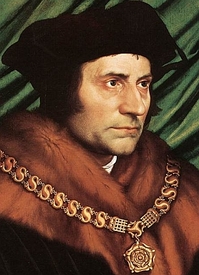 O God, who in martyrdom have brought true faith to its highest expression, graciously grant that, strengthened through the intercession of Saints John Fisher and Thomas More, we may confirm by the witness of our life the faith we profess with our lips.
O God, who in martyrdom have brought true faith to its highest expression, graciously grant that, strengthened through the intercession of Saints John Fisher and Thomas More, we may confirm by the witness of our life the faith we profess with our lips.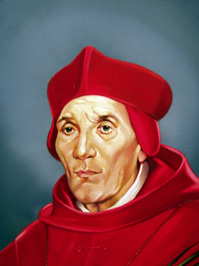 The events of today require us to seek divine assistance. Actually the events of every day require us to seek divine assistance.
The events of today require us to seek divine assistance. Actually the events of every day require us to seek divine assistance. 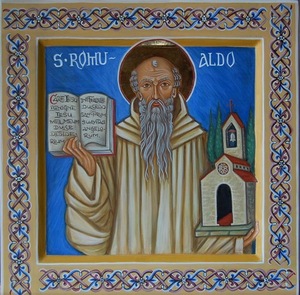
O God, who through Saint Romuald renewed the manner of life of hermits in your Church, grant that, denying ourselves and following Christ, we may merit to reach the heavenly realms of high.
"Sit in your cell as in paradise. Put the whole world behind you and forget it. Watch your thoughts like a good fisherman watching for fish. The path you must follow is in the Psalms -- never leave it.... And if your mind wanders as you read, do not give up; hurry back and apply your mind to the words once more. Realize above all that you are in God's presence, and stand there with the attitude of one who stands before the emperor..."
Saint Romuald (+1027)
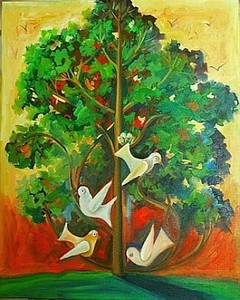 The Lord loves parables. Today's parable is the one about the mustard seed growing into a big tree for all the birds to make a home. A fitting typology for heaven. But it is only a metaphor but a reality: the small becomes great. As Sofia Cavalletti said, "The person who at a certain point becomes aware of the dynamic nature of the Kingdom of God, which is like a mustard seed, will gradually come to see this dynamism filling the universe and empowering man and his history" (Religious Potential of the Child, 165). Jesus, in today's gospel, fixes our attention on the place we have in His Father's Kingdom here on earth and with Him in heave: our growth, transformation and conversaion is slow and purpose-filled. It is a recognition of the Mystery.
The Lord loves parables. Today's parable is the one about the mustard seed growing into a big tree for all the birds to make a home. A fitting typology for heaven. But it is only a metaphor but a reality: the small becomes great. As Sofia Cavalletti said, "The person who at a certain point becomes aware of the dynamic nature of the Kingdom of God, which is like a mustard seed, will gradually come to see this dynamism filling the universe and empowering man and his history" (Religious Potential of the Child, 165). Jesus, in today's gospel, fixes our attention on the place we have in His Father's Kingdom here on earth and with Him in heave: our growth, transformation and conversaion is slow and purpose-filled. It is a recognition of the Mystery.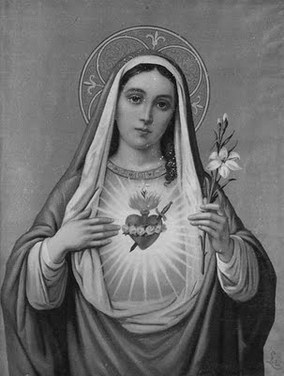
We need perspective, we need a good review of what's happening in the press regarding the state of Catholicism. At least I do. The ever-well spoken George Weigel takes on us on a brief journey....
The American mainstream media, reflecting deeper currents in American culture, typically treats "religion" as a private lifestyle choice: a personal option one may exercise to make sense out of life (and death) through certain rituals embodied in communities. That the "choice" in question has anything to do with adherence to the truth, as one is grasped and transformed by that truth; that those rituals embody religious truth in a unique way that links the believer to the very life of God; that those communities are formed by, and accountable to, truths that can be rationally explicated in a body of knowledge called "theology" -- say what? To treat religion as a lifestyle choice leaves little room for the very concept of "truth," unless it be the anorexic postmodern notion of "your truth" and "my truth" (which means that Khalid Sheikh Muhammad's "truth" is just as much "truth" as Pope Benedict XVI's). In the sandbox of self-absorption that is so much of postmodern culture, there is little or no room for the truth.
Perhaps we should take a hint from a recent Church Council on this matter: "Theology relies on the written Word of God, taken together with sacred Tradition, as on a permanent foundation. By this Word it is most firmly strengthened and constantly rejuvenated, as it searches out, under the light of faith, the full truth stored up in the mystery of Christ." (Dogmatic Constitution on Divine Revelation)
Read the whole article here.
Georeg Weigel
"Don't Know Much about Theology ..."
National Review online
June 12, 2012
and to keep them alive in famine. (Entrance ant. Ps 33)
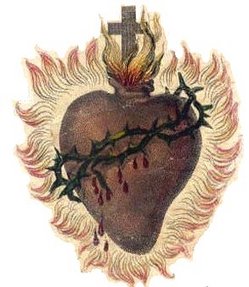
I am always enthralled with the Church's solemnity of the Most Sacred Heart of Jesus. The wondrous love poured out for us, Christ's Heart is the center of our life of love, forgiveness, peace, compunction, and action. It is from the Heart of Christ that the Church is born and sacraments given as a sign and nourishment.
In his chapter "The Heart of Jesus at His Birth in Bethlehem" Blessed Louis Guanella offers this prayer to the Sacred Heart:
Blessed Louis GuanellaO Most Holy Heart of Jesus, I cannot love you as the Blessed Mother loved you. I feel bad about it. I would like to love you, as the chaste Joseph did. At least, O Lord, make me love you with simplicity and affection equal to that of the devout shepherds. How happy will I be when I will really begin to love you! How fortunate I will be when, enkindling my accent, I will be able to applaud around you with the choirs of angels, saying: "Glory to God in the highest, and peace on earth to men of good will!"
In the Month of Fervor: Thirty Scriptural Maxims Developed on the Sacred Heart of Jesus for Christian Souls
May the fire of the Heart of Jesus burn brightly within us!
 The Church is getting more deeply into sport laity with the John Paul II Foundation for Sport, and the Pontifical Councils for Culture and Laity. It is believed that sport as a privileged place for dialogue among church, culture and youth. Sport is healthy recreation and appropriate challenge. Sport is a point of reference of bettering oneself and the development of virtue.
The Church is getting more deeply into sport laity with the John Paul II Foundation for Sport, and the Pontifical Councils for Culture and Laity. It is believed that sport as a privileged place for dialogue among church, culture and youth. Sport is healthy recreation and appropriate challenge. Sport is a point of reference of bettering oneself and the development of virtue.Representatives from the Pontifical Council for Culture and the Pontifical Council for the Laity held a press conference at the Vatican on Thursday, during which they presented the new lines of cultural approach to sport. The new approach is aimed at coming to an understanding of sport as a privileged place for dialogue among Church, culture and youth. The conference also provided an opportunity to present the Pontifical Council for Culture's new Department dedicated to Culture and Sport, which will work closely with the Church and Sport Section of the Pontifical Council for the Laity, and the John Paul II Foundation for Sport. One of those who participated in the press briefing was Fr. Kevin Lixey, who is Responsible for the Church and Sport Section at the Council for the Laity. He told Vatican Radio recent, highly publicized scandals in major league sports - including betting scandals in Italy - make the announcement extremely timely. "On the one hand," said Lixey, "we wanted to announce something we've been doing for the past year and a half," adding, "it's a moment for the Church to show that it is concerned." Fr. Lixey went on to say, "[The Church] is actively working and interested in trying to stimulate a little bit more the pastoral work with sport," on all levels, from youth leagues to international and professional compretition. "There is," said Fr. Lixey, "still a lot of good in sport."
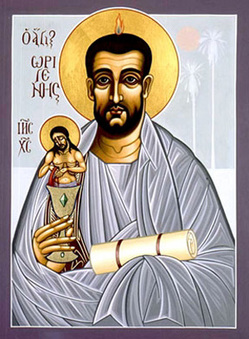
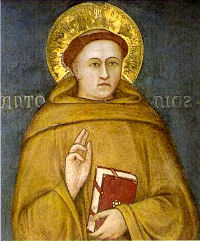 Almighty ever-living God, who gave Saint Anthony of
Padua to your people as an outstanding preacher and an intercessor in their
need, grant that, with his assistance, as we follow the teachings of the
Christian life, we may know your help in every trial.
Almighty ever-living God, who gave Saint Anthony of
Padua to your people as an outstanding preacher and an intercessor in their
need, grant that, with his assistance, as we follow the teachings of the
Christian life, we may know your help in every trial.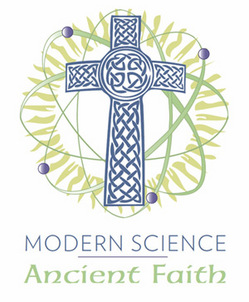 The Portsmouth Institute is set to begin its third year of work from June 22-24, 2012, with the theme of "Modern Science, Ancient Faith." The Institute is located at Portsmouth Abbey and School (Portsmouth, RI).
The Portsmouth Institute is set to begin its third year of work from June 22-24, 2012, with the theme of "Modern Science, Ancient Faith." The Institute is located at Portsmouth Abbey and School (Portsmouth, RI).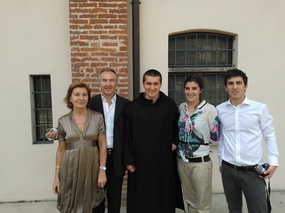
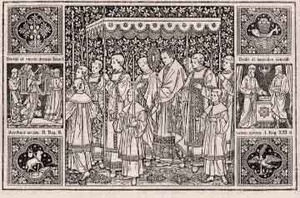 Yesterday was the great feast of The Solemnity of the
Body and Blood of Christ. At Saint Catherine of Siena Church in New York City
the parish community with the Dominican Friars led by Father Jordan Kelly
celebrated a Solemn Mass for the feast and then took to the streets with the Monstrance containing Our Lord and Savior. For the
first time in years Our Lord in His Eucharistic Presence was carried in
procession in the neighborhood of the church. Imagine the faces of Catholics, Christians, Jews, Muslims and those who do not share our Eucharistic faith seeing such display of faith and devotion!
Yesterday was the great feast of The Solemnity of the
Body and Blood of Christ. At Saint Catherine of Siena Church in New York City
the parish community with the Dominican Friars led by Father Jordan Kelly
celebrated a Solemn Mass for the feast and then took to the streets with the Monstrance containing Our Lord and Savior. For the
first time in years Our Lord in His Eucharistic Presence was carried in
procession in the neighborhood of the church. Imagine the faces of Catholics, Christians, Jews, Muslims and those who do not share our Eucharistic faith seeing such display of faith and devotion! If we wish to understand the power of Christ's blood, we should go back to the ancient account of its prefiguration in Egypt. 'Sacrifice a lamb without blemish', commanded Moses, 'and sprinkle its blood on your doors'. If we were to ask him what he meant, and how the blood of an irrational beast could possibly save people endowed with reason, his answer would be that the saving power lies not in the blood itself, but in the fact that it is a sign of the Lord's blood. In those days, when the destroying angel saw the blood on the doors he did not dare to enter, so how much less will the devil approach now when he sees, not that figurative blood on the doors, but the true blood on the lips of believers, the doors of the temple of Christ.
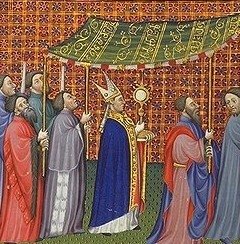
The feast of Corpus Christi has a rich fare to savor: prayers, Bible readings, music, and poetic texts. The point of the Church offering us this opportunity to honor the Eucharistic Presence is to extend in our lives a deeper grace given in Communion theology, to have a closer with the Lord in His promised hundredfold. It is, of course, a deepening in our lives what the Lord Himself did and gave to us on Holy Thursday with Eucharist and the priesthood.
The Sequence (the poetry which follows the second lesson at Mass and directly precedes the Alleluia verse), Lauda Sion Salvatorem, is ideally fitting for the sacred Liturgy. Google this masterpiece of poetry expressing theology in a way that stimulates prayer and deepens one's faith.
The English priest Father Ronald Knox offers a perspective on what we're doing in observing the great feast of the Lord's Body and Blood. The following is taken from his meditation on Corpus Christi:
Like the Jewish Temple, the Christian altar is the rallying point of God's people. The whole notion of Christian solidarity grows out of, and is centered in, the common participation of a common Table. The primitive Church in Jerusalem broke bread day be day from house to house; its stronghold of peace was not any local centre, but a common meal. Christian people, however separated by long distances of land or sea, still meet together in full force, by a mystical reunion, whenever and wherever the Bread is broken and the Cup blessed.
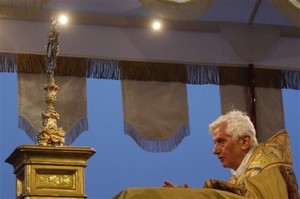
The observance of Corpus Christi, sometimes called Corpus Domini (The Body of the Lord). In places like Rome, the traditional day to observe this feast is Thursday, connecting with Holy Thursday. A portion of the Pope's homily is noted below (the full text is here).
... the sacredness of the Eucharist. Also here we heard in the recent past of a certain misunderstanding of the authentic message of Sacred Scripture. The Christian novelty in regard to worship was influenced by a certain secularist mentality of the 60s and 70s of the past century. It is true, and it remains always valid, that the center of worship is now no longer in the rites and ancient sacrifices, but in Christ himself, in his person, in his life, in his paschal mystery. And yet, from this fundamental novelty it must not be concluded that the sacred no longer exists, but that it has found its fulfillment in Jesus Christ, incarnate divine Love. The Letter to the Hebrews, which we heard this evening in the Second Reading, speaks to us precisely of the novelty of the priesthood of Christ, "high priest of the good things that have come" (Hebrews 9:11), but it does not say that the priesthood is finished. Christ "is the mediator of a new covenant" (Hebrews 9:15), established in his blood, which purifies our "conscience from dead works" (Hebrews 9:14). He did not abolish the sacred, but brought it to fulfillment, inaugurating a new worship, which is, yes, fully spiritual but which however, so long as we are journeying in time, makes use again of signs and rites, of which there will be no need only at the end, in the heavenly Jerusalem, where there will no longer be a temple (cf. Revelation 21:22). Thanks to Christ, the sacred is more true, more intense and, as happens with the Commandments, also more exacting! Ritual observance is not enough, but what is required is the purification of the heart and the involvement of life.
Pope Benedict XVI
Corpus Christi at the Basilica of St. John Lateran
7 June 2012
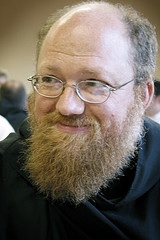 My friend Father Cyril Crawford died unexpectedly a short time ago, on 15 May 2012. He died in his sleep in Leuven (Louvain), Belgium, at the Katholieke Universiteit Leuven, where he was working on a doctorate in Philosophy so that he could teach at his monastery's college.
My friend Father Cyril Crawford died unexpectedly a short time ago, on 15 May 2012. He died in his sleep in Leuven (Louvain), Belgium, at the Katholieke Universiteit Leuven, where he was working on a doctorate in Philosophy so that he could teach at his monastery's college. The Meeting, as it is known in shorthand, is quickly approaching (19-25 August). This is its 33rd year. This cultural event now draws nearly 800,000 people from across the globe.
The Meeting, as it is known in shorthand, is quickly approaching (19-25 August). This is its 33rd year. This cultural event now draws nearly 800,000 people from across the globe.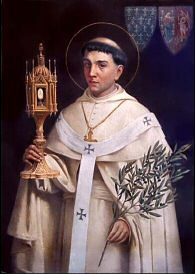 Saint Norbert is often overlooked in this country, perhaps because he lived so long ago that he hardly matters today, or because meeting his spiritual sons and daughters is a rarity unless you live in Paoli, PA, DePere, WI or Silverado, CA (or a handful of other places places) where you might encounter the Canon Regular, aka Norbertines. BUT I would submit that Saint Norbert cannot be dismissed because he lived in the 11th nor because you have neither met the Canons nor the Canoness.
Saint Norbert is often overlooked in this country, perhaps because he lived so long ago that he hardly matters today, or because meeting his spiritual sons and daughters is a rarity unless you live in Paoli, PA, DePere, WI or Silverado, CA (or a handful of other places places) where you might encounter the Canon Regular, aka Norbertines. BUT I would submit that Saint Norbert cannot be dismissed because he lived in the 11th nor because you have neither met the Canons nor the Canoness.Today's first reading from the First Letter of Peter offers an exhortation to his hearers who are facing difficult times: be eager to stand firm. As the people who heard Peter so we too, today, need to remember that the Lord has an infinite amount of patience; in fact He never tires, but His adopted children need to recall that only He's the matrix of the covenant's fulfillment. God is present, stand firm.
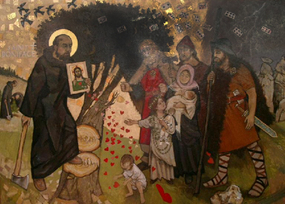
Saint Boniface, the Englishman monk who became the Apostle to Germany, whose memory we commemorate today, also exhorted those of his time to stand firm because God is present. In the Office of Readings this morning I reacquainted myself with a rather curious set of images that Boniface delivered to the bishops of his time and place make connects very nicely with the Scriptures. Saint Boniface said, "Let us be neither dogs that do not bark nor silent onlookers nor paid servants who run away before the wolf. Instead let us be careful shepherds watching over Christ's flock. Let us preach the whole of God's plan to the powerful and to the humble, to rich and to poor, to men of every rank and age, as far as God gives us the strength, in season and out of season, as Saint Gregory writes in his book of Pastoral Instruction."
Indeed, let the bark be heard.
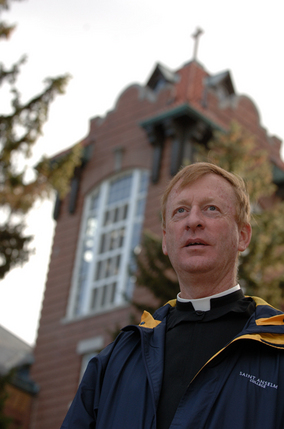 The monks of Saint Anselm's Abbey (Manchester, New Hampshire) have elected Father Mark Cooper as their 5th abbot. 25 of the 28 monks were eligible to vote.
The monks of Saint Anselm's Abbey (Manchester, New Hampshire) have elected Father Mark Cooper as their 5th abbot. 25 of the 28 monks were eligible to vote.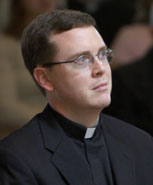 The century old magazine edited by the Jesuits, America Magazine, has a new editor in chief, Father Matthew Malone, SJ. He's the 14th editor, and the youngest in the publication's history.
The century old magazine edited by the Jesuits, America Magazine, has a new editor in chief, Father Matthew Malone, SJ. He's the 14th editor, and the youngest in the publication's history.On January 14, Monsignor Massimo Camisasca admitted several men to Candidacy. This means those who are asking to be ordained priests in the Missionary Fraternity of Saint Charles Borromeo. Monsignor is the founder and Superior General. The reason I am posting this homily is because of Monsignor Camisasca's imagery of the house of God and the invitation given to enter. He sets the stage of what priesthood is about... Where do you remain, and with whom? Where is your joy?
To introduce us to the profound meaning of what happens to you today and in reflex to us, let us place ourselves on the same wavelength of the question that Andrew and John directed to Jesus: Master, where do you live? (Jn 1.38).
As well as this evening we also ask: "Where do you live?". To be able to stay with Him, we must know where he lives. Your "yes" today is placed on the path that you are completing here in the seminary, a path in which you learn where Jesus lives and how to stay with him. To know Jesus, to know Him interiorly, profoundly, to experience him constitutes the fullness of our existence.
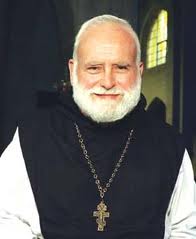 Today marks the 7th anniversary of death of M. Basil Pennington, OCSO, monk, priest, abbot, writer. In 2005 he died on the feast of the Sacred Heart.
Today marks the 7th anniversary of death of M. Basil Pennington, OCSO, monk, priest, abbot, writer. In 2005 he died on the feast of the Sacred Heart.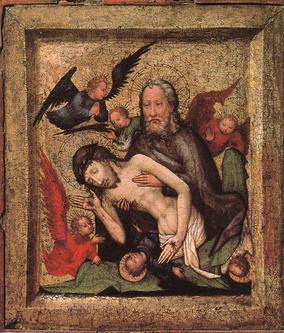
No one is to be called a Theist, who does not believe in a Personal God, whatever difficulty there may be in defining the word "Personal." Now it is the belief of Catholics about the Supreme Being, that this essential characteristic of His Nature is reiterated in three distinct ways or modes; so that the Almighty God, instead of being One Person only, which is the teaching of Natural Religion, has Three Personalities, and is at once, according as we view him in the one or the other of them, the Father, the Son, and the Spirit--a Divine Three, who bear towards Each Other the several relations which those names indicate, and are {125} in that respect distinct from Each Other, and in that alone.
John Henry Newman
An Essay in aid of a Grammar of Assent, Chapter 5
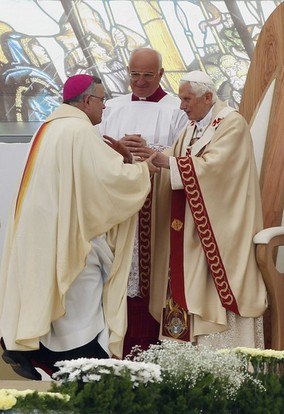
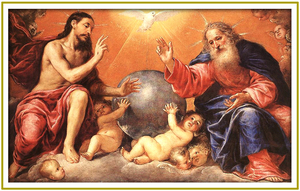 In the Sacraments of Initiation, God invites us to
share in the life of the Most Blessed Trinity: we become recreated in the image
of Jesus Christ, filled with the Holy Spirit, and adopted as sons and daughters
of the Father.
In the Sacraments of Initiation, God invites us to
share in the life of the Most Blessed Trinity: we become recreated in the image
of Jesus Christ, filled with the Holy Spirit, and adopted as sons and daughters
of the Father.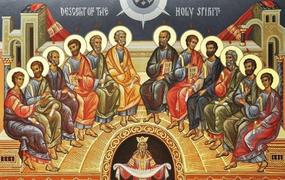 The Roman Church celebrated Pentecost last weekend thus concluding the Easter season. This weekend the same Church observes the feast of the Most Holy Trinity.
The Roman Church celebrated Pentecost last weekend thus concluding the Easter season. This weekend the same Church observes the feast of the Most Holy Trinity.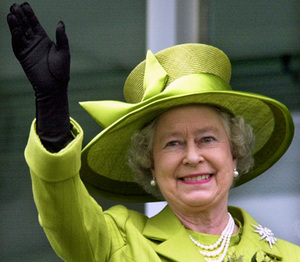 Today, England's Queen Elizabeth II, 86, begins the 60th anniversary of taking the English Throne.
Today, England's Queen Elizabeth II, 86, begins the 60th anniversary of taking the English Throne. We have to avoid a secularism that excludes faith, that excludes God from public life, and transforms it into a purely subjective factor, and therefore also arbitrary. If God has no public value, if He is not a need for all of us, then He becomes an idea that can be manipulated.
Joseph Cardinal Ratzinger
Interview in Communion and Liberation Traces
October 2004
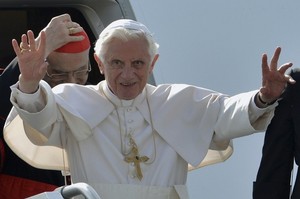
The general intention
That believers may recognize in the Eucharist the living presence of the Risen One who accompanies them in daily life.
The missionary intention
That Christians in Europe may rediscover their true identity and participate with greater enthusiasm in the proclamation of the Gospel.

